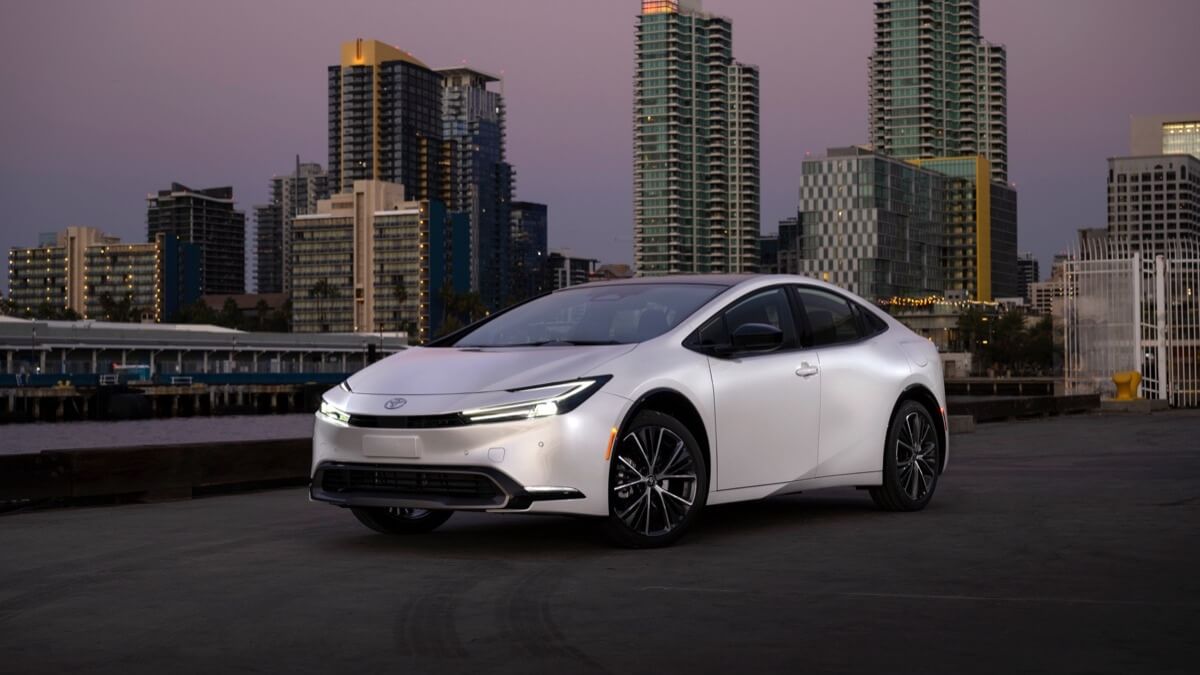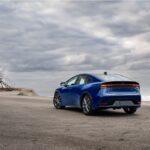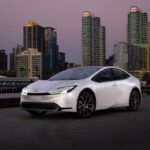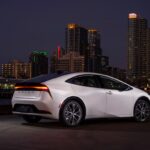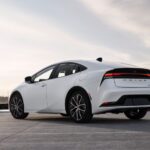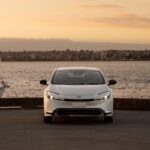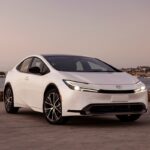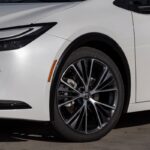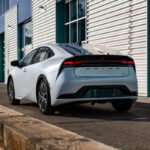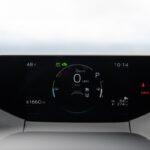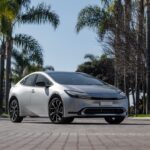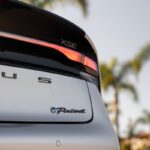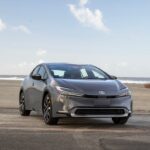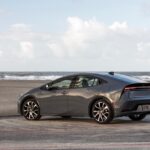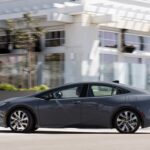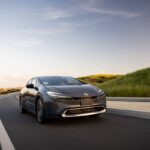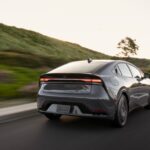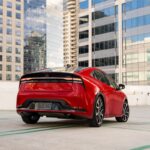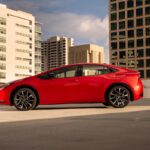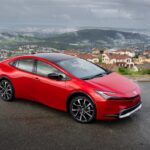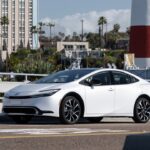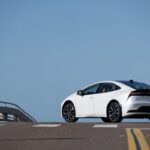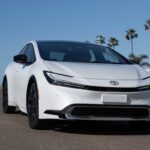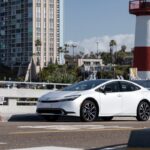In recent years, the buzz around electric vehicles (EVs) has been unavoidable, with promises of revolutionizing how we drive and interact with our environment. However, amid the growing chorus for all-electric transportation, the Toyota Prius—the pioneer of hybrid technology—has silently undergone a dramatic transformation. The new fifth-generation Prius is no longer just a practical choice; it’s becoming a desirable one, even among those who typically shy away from EVs.
For many, the thought of owning an EV is marred by concerns like high costs, complex new technologies, and the anxiety of running out of battery power on busy days. But here’s where the new Prius shines. It isn’t a fully electric vehicle, but it offers an appealing blend of traditional fuel and electric power, providing the best of both worlds. This means you can enjoy the benefits of advanced automotive tech and better fuel economy without fully committing to the electric revolution.
Moreover, the latest Prius has shed its earlier, somewhat bland exterior for a sleeker, more attractive design that rivals many modern cars on the road today. Coupled with significant improvements in driving dynamics, it delivers eco-friendly performance and a genuinely enjoyable driving experience. Whether you’re driving around city streets or cruising on the highway, the new Prius promises economy without sacrificing the joy of driving—making it an excellent choice for daily commutes and more.
So, if the idea of diving into an all-electric future seems daunting or impractical, the Toyota Prius stands out as a smart alternative. And in this article, we’re going to spit out the facts and tell you why the Prius isn’t just a good hybrid; it’s a good car.
Redefining Style and Appeal
The new fifth-gen Toyota Prius breaks the mold of its predecessors, embracing a design philosophy that appeals to a broader audience. Gone are the days when driving an eco-friendly car meant sacrificing style for sustainability. This transformation is about setting new standards for what a hybrid car can look like.
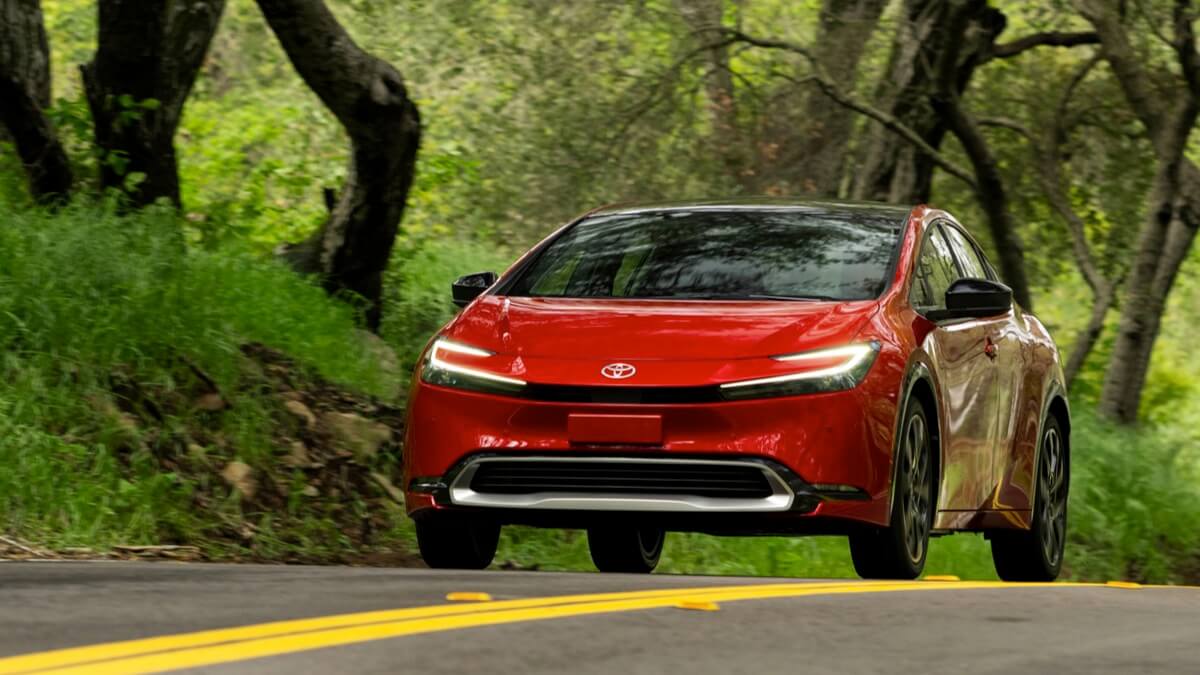
The latest Prius model sports a body that is longer, lower, and wider than its previous versions, giving it a more grounded and assertive presence on the road. The redesign extends beyond mere dimensions; it introduces a more sculptural and dynamic aesthetic that can turn heads. The car’s sleek profile is highlighted by a rakishly swept roofline and a nifty hatch that incorporates a sporty spoiler.
Toyota has dramatically overhauled the front end, introducing a sharp, modern look that draws comparisons to some luxury sports cars. This new face is characterized by Toyota’s new corporate nose, which might remind one of high-end European models. The back of the car is equally impressive, featuring a slim LED taillight that spans the width of the vehicle, providing a futuristic feel and enhancing nighttime visibility.
One of the standout features is the Prius Prime’s optional solar roof. Not only does this feature enhance the car’s green credentials by helping to charge the battery, but it also adds a distinctive sporty element to the vehicle’s exterior. This feature speaks volumes about Toyota’s commitment to innovation, allowing drivers to draw power from the sun, reducing dependency on traditional charging methods.
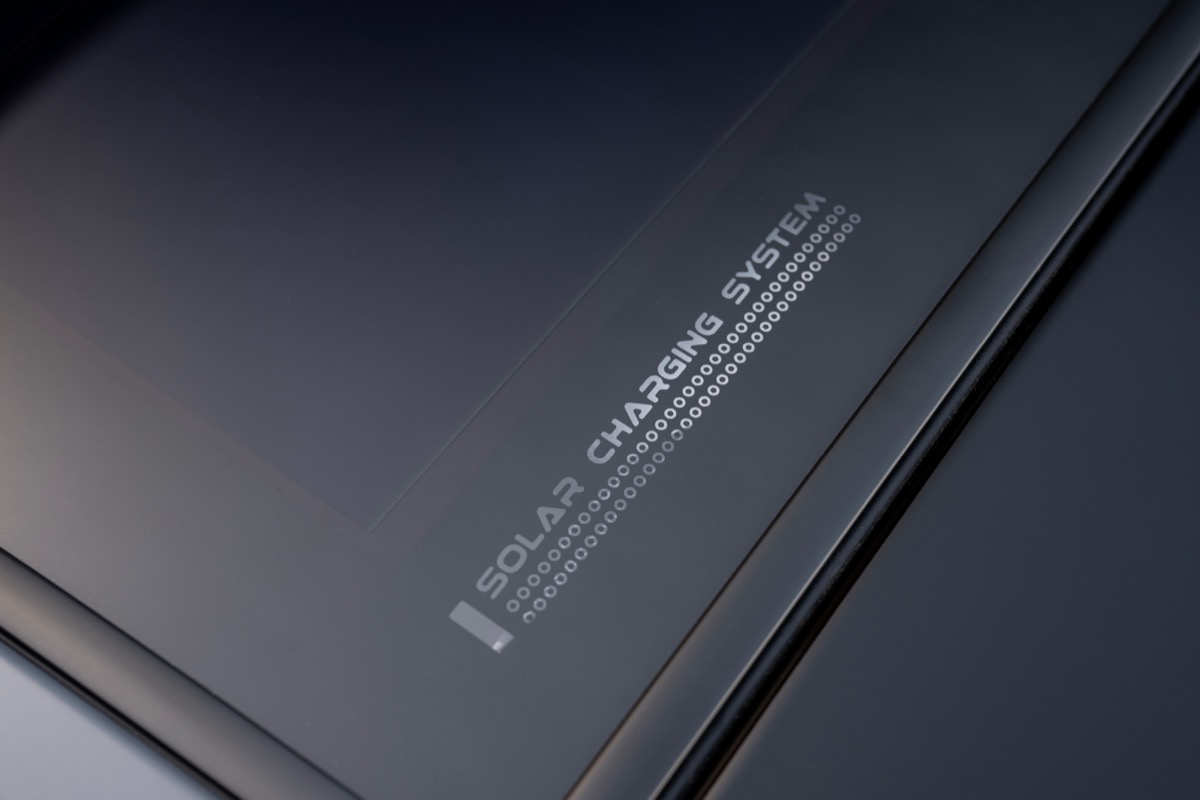
Inside, the Prius continues to impress with a cabin that strikes a balance between high-tech and practical. The interior has been revamped to rid itself of the previous generations’ sometimes criticized mix of materials and layout. Now, drivers will find a more cohesive and streamlined environment, featuring higher-quality materials and sophisticated color schemes that complement the exterior’s modern vibe.
Performance That Excites
While the Prius has long been famous for its efficiency and reliability, the latest iteration focuses on bringing a genuinely thrilling performance. The fifth-gen model is engineered to dispel any myths that hybrids are destined to be dull. With significant enhancements under the hood, this Prius is designed to meet and exceed the expectations of today’s drivers who crave a more dynamic driving experience.
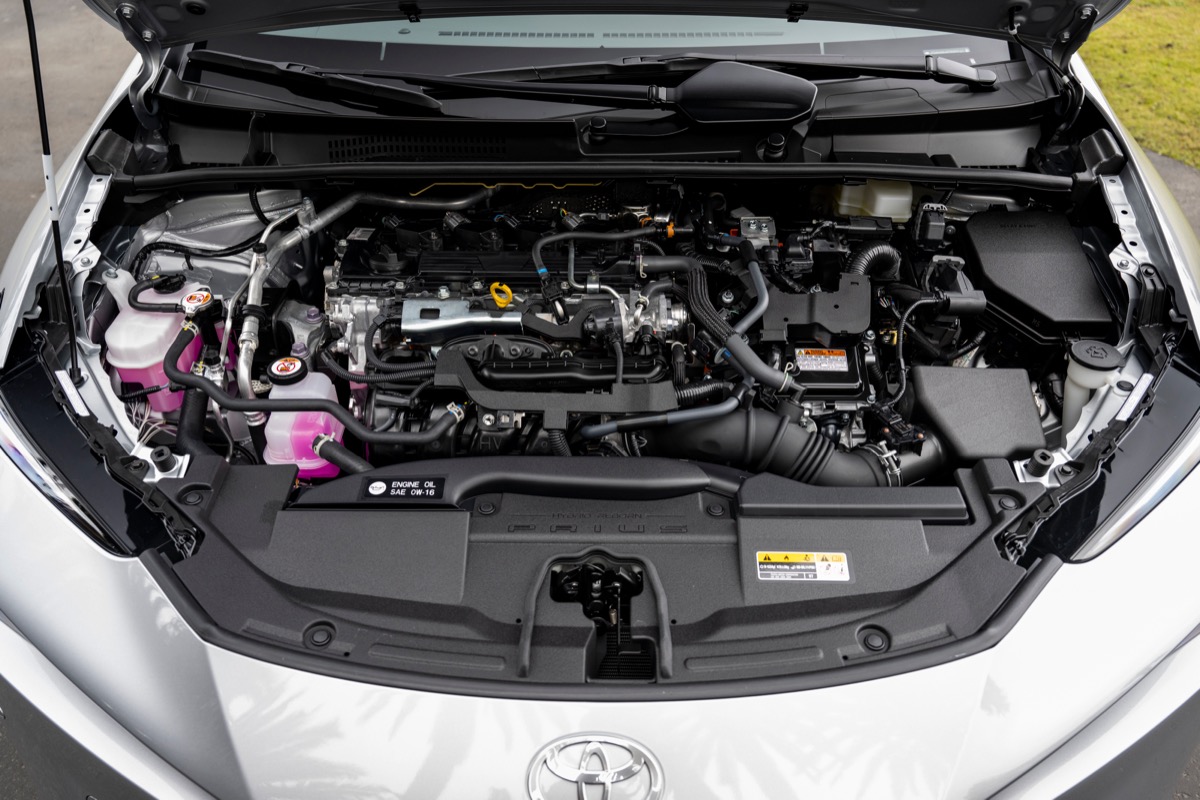
The core of the Prius’s enhanced performance lies in its upgraded hybrid powertrain. The older 1.8-liter engine has been replaced with a more potent 2.0-liter four-cylinder engine. This new engine, in combination with advanced electric motors, provides a significant boost in power output. The standard Prius models now deliver an impressive 194 horsepower, while the Prius Prime plug-in hybrid pushes this even further to 220 horsepower. This increase in power translates to a more responsive and engaging ride, capable of accelerating from 0 to 60 mph in just 6.4 seconds—a figure that rivals many conventional cars and even some sports models.
Handling and agility have also seen substantial improvements. The new Prius rides on Toyota’s latest TNGA platform, which not only enhances structural rigidity but also lowers the center of gravity. This results in better stability and a smoother ride, allowing the Prius to navigate tight turns and twisty roads with surprising grace. Shockingly, the Prius now offers a driving experience that can genuinely be described as enjoyable.
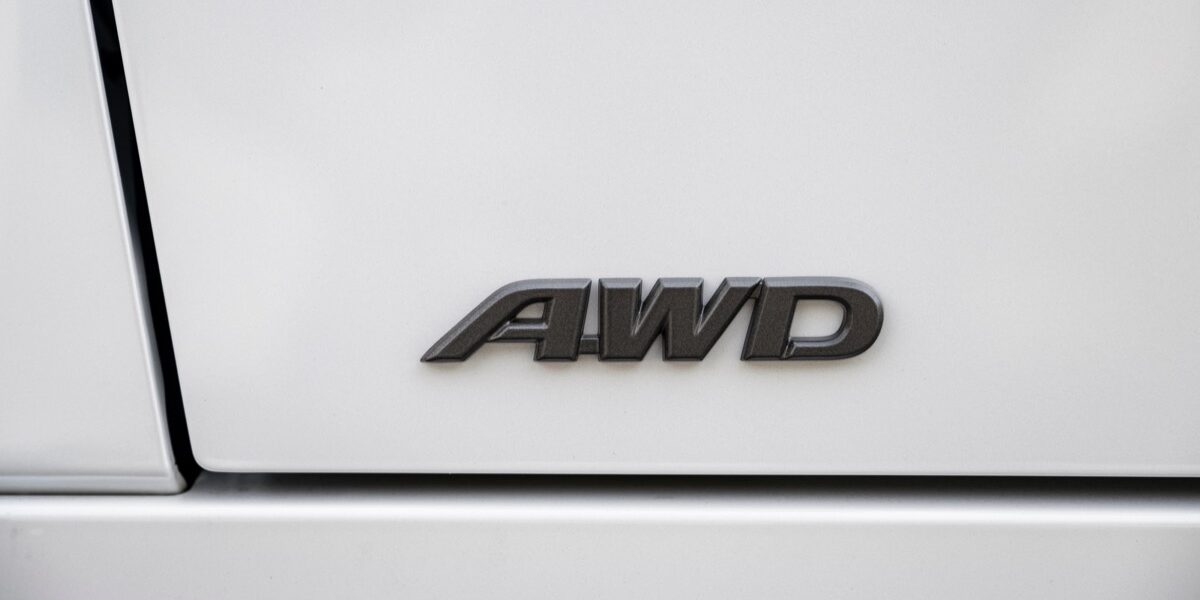
Also, the introduction of all-wheel drive as an option marks a significant milestone for the Prius lineup. This feature improves traction and performance in adverse weather conditions, providing an extra layer of safety and confidence for drivers.
Unmatched Fuel Efficiency and Range
The new Prius achieves an exceptional fuel economy of up to 57 miles per gallon (mpg) in its standard configuration, making it one of the most fuel-efficient cars on the market without fully relying on electric power. This level of efficiency is both impressive and transformative, offering potential savings that can significantly reduce the cost of ownership over the life of the vehicle. In comparison, the Prius Prime, with its plug-in hybrid capabilities, pushes the boundaries even further by offering up to 127 miles per gallon equivalent (mpg-e) in combined driving conditions. These figures represent a blend of electric and gasoline power, illustrating the hybrid’s ability to optimize energy use and minimize fuel consumption.
Furthermore, the Prius Prime extends its appeal with an all-electric range of up to 45 miles. For many, this range is more than sufficient to cover daily travel without using a drop of gasoline. It’s particularly beneficial in urban settings, where short trips are common, and emissions from gasoline engines can be more problematic.
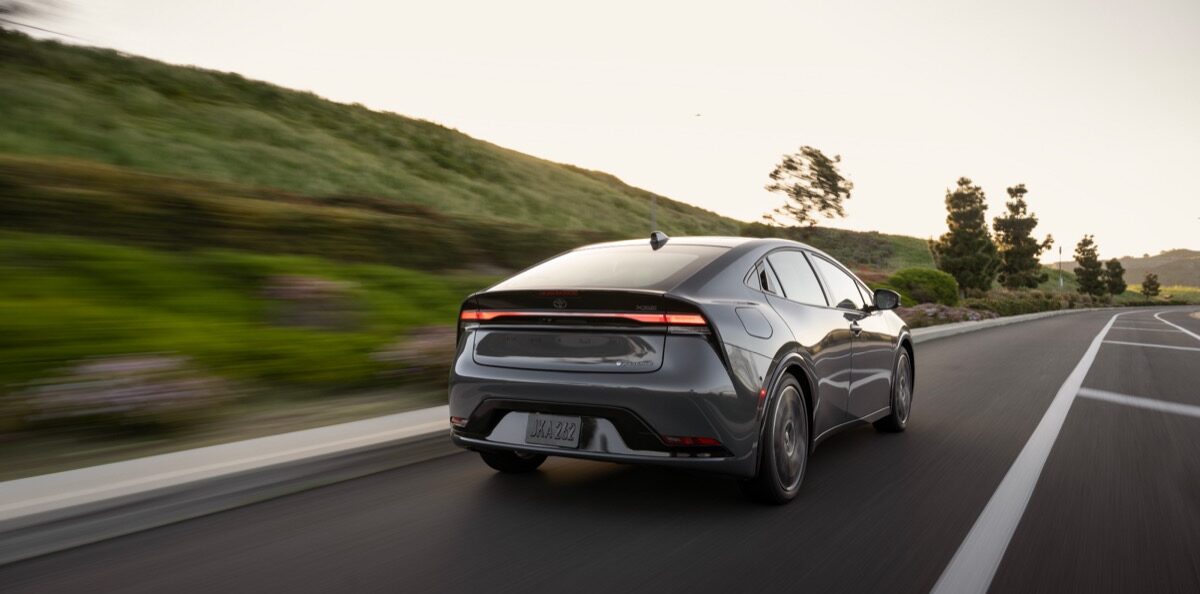
The Prius’s ability to switch seamlessly between gasoline and electric power means that drivers can enjoy the best of both worlds: the extended range and convenience of a traditional gasoline engine with the efficiency and quiet operation of an electric motor. This flexibility is a significant advantage in areas where charging infrastructure may still be developing or for drivers who undertake longer journeys where charging stations might be sparse.
Range anxiety, a common concern with EVs, is virtually eliminated in the Prius. With its hybrid system, the vehicle can cover impressive distances on a full tank and a fully charged battery—over 600 miles, according to Toyota’s estimates. This extended range makes the Prius ideal for long-distance travel, providing peace of mind that few other vehicles can match.
Economic Benefits and Accessibility
Starting at around $30,000, the fifth-gen Prius is notably affordable, especially considering the rising costs of new vehicles, which often exceed $45,000 on average in the US. This pricing strategy makes the Prius accessible to a broader audience, ensuring more drivers can experience hybrid technology without breaking the bank. Additionally, the Prius’s cost-effectiveness extends beyond its purchase price to include lower operational and maintenance costs over the vehicle’s lifespan.
Fuel costs are drastically reduced with the Prius. Its superb fuel efficiency means fewer trips to the gas station and more money saved, which can add up to substantial savings over time. Furthermore, because hybrids rely less on their gasoline engines and more on electric power, wear and tear on traditional engine components is minimized, potentially reducing maintenance costs. The Prius also benefits from Toyota’s reputation for reliability and durability, which contributes to lower depreciation rates and better long-term value retention than many of its competitors.
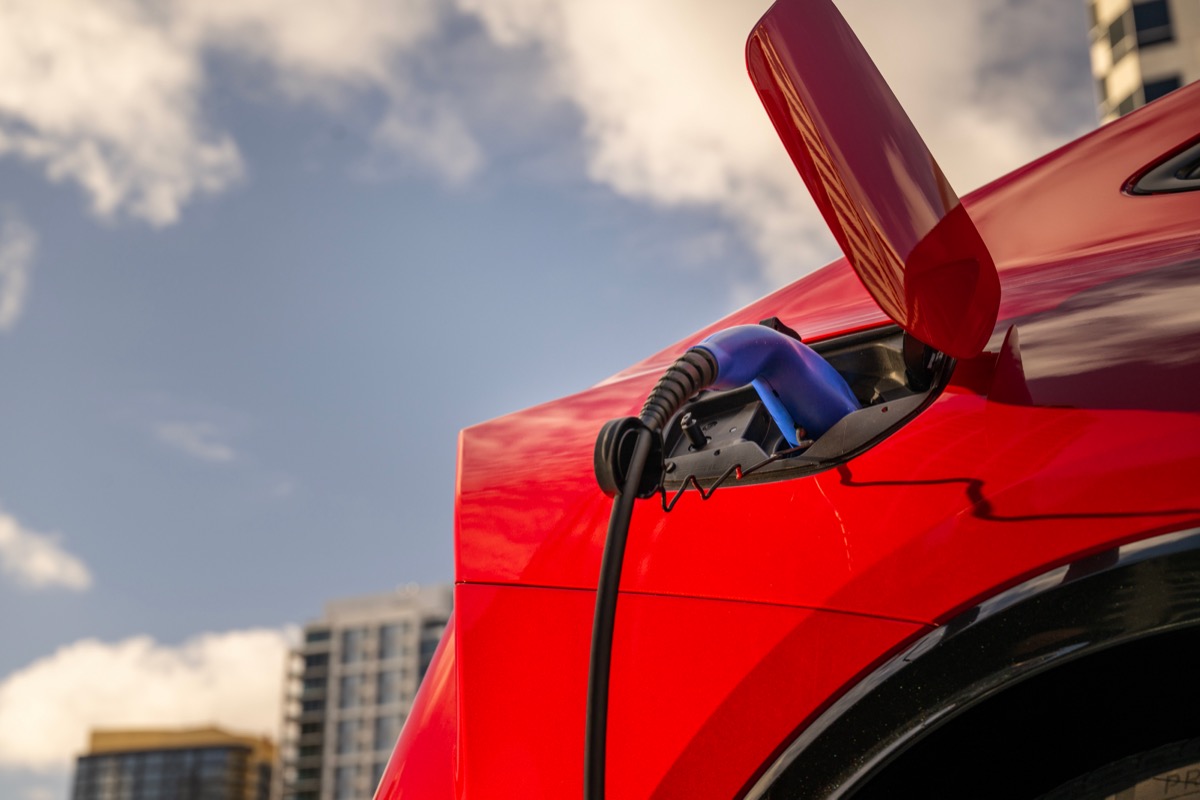
Moreover, the Prius Prime model offers the added economic benefit of plug-in capability, which can lead to further savings through federal and state tax incentives designed to promote cleaner energy usage. Depending on the buyer’s location, these incentives can significantly lower the initial cost, making Prius Prime an even more cost-effective choice. For those living in states with additional perks for hybrid and EV owners, such as reduced registration fees or rebates on home charging equipment, the savings can be even greater.
Indeed, with its competitive pricing, low operating costs, and potential for tax incentives, along with its adaptability to different lifestyles and driving needs, the Prius stands out as a leader in making hybrid technology accessible and appealing to a broad demographic.
Sales and Market Trends
The 2024 Toyota Prius demonstrated remarkable success in the marketplace, and its recent sales figures are a clear indicator of its growing popularity and the shifting preferences of consumers toward more sustainable transportation options. In the first quarter of 2024, Toyota reported a staggering 138.6% increase in Prius sales year-over-year, with 13,327 units sold compared to 5,586 units in the same period of 2023.
This surge in sales significantly outpaces the growth rates of many battery electric vehicles (BEVs), including Toyota’s own bZ4X and the upscale Lexus RZ. While these EVs also saw increases in sales, their numbers pale in comparison to the Prius, illustrating a robust consumer preference for hybrids over fully electric models in certain segments of the market.
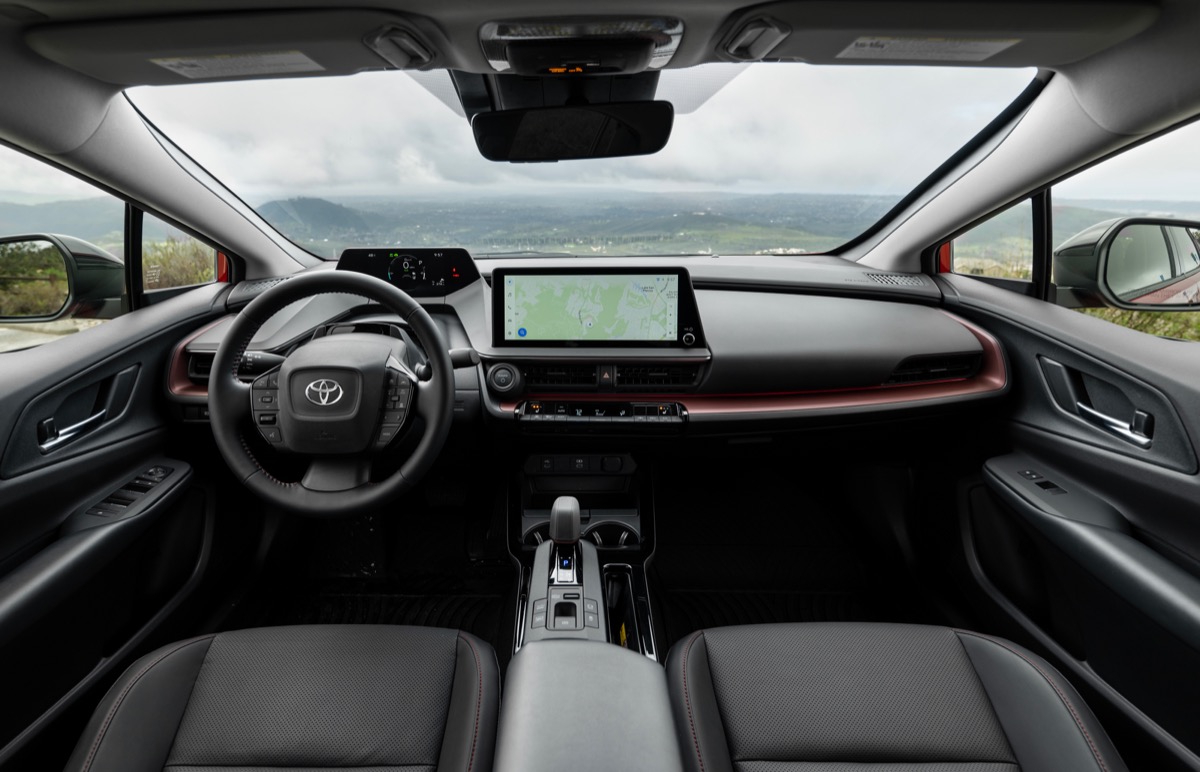
This trend is particularly notable at a time when the automotive industry is heavily promoting EVs as the future of transportation. The substantial growth in Prius sales suggests that while EVs are gaining traction, hybrids like the Prius continue to offer a compelling value proposition that resonates with a large number of consumers. The Prius’s ability to bridge the gap between traditional gasoline engines and EVs—with its reliable performance, lower cost of entry, and absence of range anxiety—makes it an attractive choice for those not ready to commit to a fully electric vehicle.
Furthermore, the overall performance of Toyota Motor North America, with a 20.3% increase in sales across all models, highlights the brand’s strong position in the market. Models such as the RAV4, Corolla, and Camry, all available in hybrid versions, have contributed to this success, emphasizing the growing consumer interest in more fuel-efficient vehicles. Even Toyota’s larger vehicles, like the Tundra which now includes a hybrid trim, have seen robust sales, up 31% with 36,215 units sold.
These trends are part of a broader movement towards hybrid technology in the automotive sector. Market analysts suggest hybrids are likely to remain popular due to their practicality and the slower-than-expected rollout of EV infrastructure in many regions. As such, Toyota’s strategic focus on hybrids alongside its EV initiatives positions it well to cater to a diverse consumer base that demands a variety of drivetrain options.
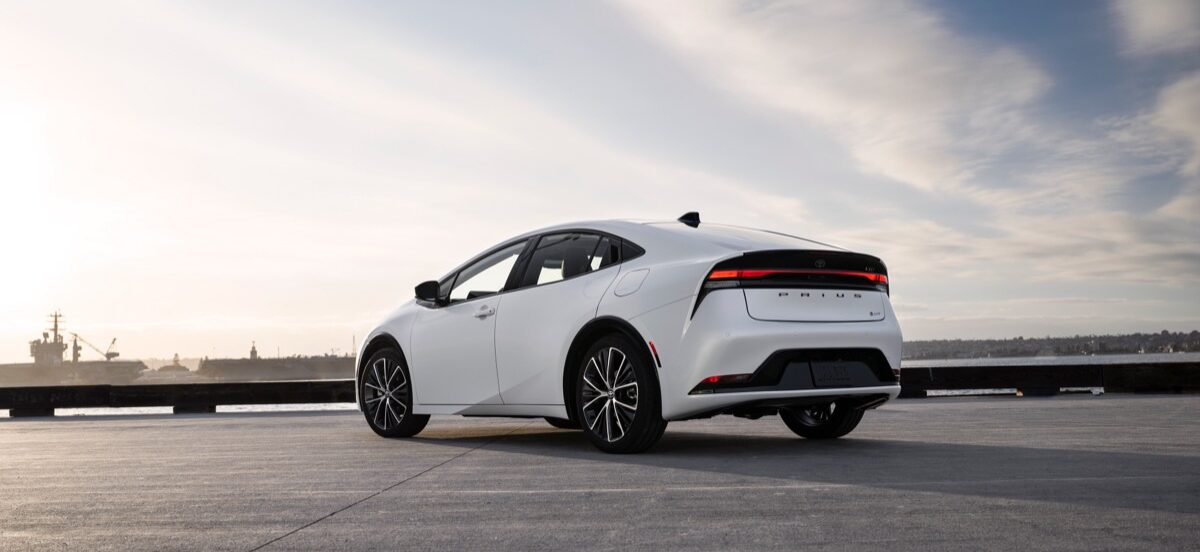
Should You Buy A Toyota Prius?
So far, we’ve pointed out that the Prius is indeed a desirable vehicle. However, deciding whether to purchase it depends on understanding its appeal and limitations. Thanks to its recent transformative updates, the fifth-gen Prius is an excellent choice for a wide variety of drivers. It’s now a frontrunner for those who prioritize eco-conscious living and economical driving without sacrificing style and driving pleasure. It’s practical, comfortable, and perfect for urban commuters.
However, the Prius might not suit everyone. For those seeking the thrill of high-performance sports cars or the prestige of luxury brands, the Prius still falls short. It also won’t give you the same confidence and capabilities as a truck or SUV due to its lower ride height. And perhaps you’re not a fan of its high-tech/futuristic design, in which case you may want to look at other Toyota models still adopting the same top-notch hybrid principles.
But despite these limitations, the Prius is a smart choice for those wanting to reduce their environmental impact without sacrificing modern conveniences. It meets diverse needs and budgets while providing reliable, stylish transportation. And if you value efficiency and forward-thinking technology, the Prius is a hard contender to beat.


